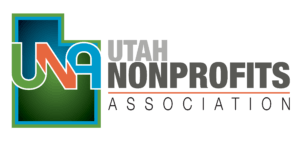Make Your Voice Heard
Advocacy is a powerful and legal tool for advancing your mission and making your voice heard on issues that are important to your nonprofit. If our elected officials are not listening to your voice, who has their attention?
Resources to Effectively and Strategically Engage Your Community, Advocate, and Lobby
Data About Utah's Nonprofits
Utah Nonprofit Sector Report highlights the growth, diversity, and current and potential challenges of Utah's nonprofits. Nonprofit members, partners, and elected officials can use the information in the report to support data-driven legislation and policies.
Use the information in the report to underscore the importance of nonprofits in our state and to advance data-driven legislation and policies.
Templates, Resources, and Legislative Links
UNA's Resource Library includes a variety of templates and documents to support your advocacy and engagement. UNA's Advocacy Toolkit is available to members in the Resources section of the Member Info Hub.
UNA Events
Nonprofit Day on the Hill creates a day for you to join with other nonprofits to join together, demonstrate your impact to our elected officials, and find allies in our sector.
The Nonprofit Credential in Advocacy and Civic Engagement synthesizes what you need to know with the resources and coaching you need to advance your advocacy to a higher level.
UNA Nonprofit Forums connect you with with government agencies and other nonprofits to find ways to solve our stickiest problems.
Lobbying Resources
Lobbying plays a crucial role in your advocacy efforts, and yes, nonprofits can lobby! By engaging in the policy-making process, nonprofits can help influence decision-makers, raise awareness about important issues, advance mission-related objectives, and contribute to making impactful and positive change in our communities.
In order to safeguard your nonprofit status while engaging in lobbying practices your organization must follow current IRS regulations. To learn more, please follow explore the following resources:
- National Council of Nonprofits Everyday Advocacy
- IRS: Lobbying - Charities and Nonprofits
- Apply for 501(h) Election
- Utah Lobbyist Resources
- UNA Advocacy Toolkit (available to members in the Advocacy Resources folder in the Member Info Hub)
